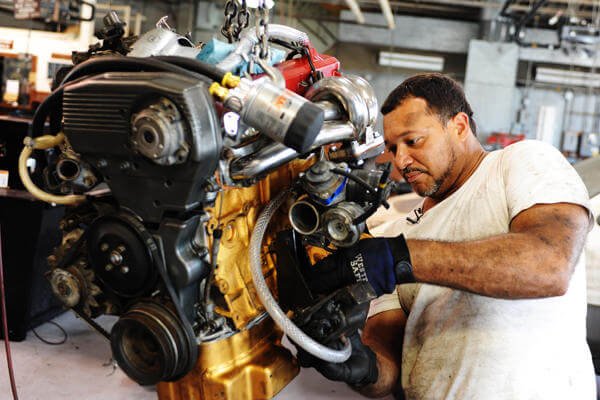If you’re contemplating whether to scrap your old car in Singapore rather than face another punishing Certificate of Entitlement renewal, you’re wrestling with one of the city-state’s most financially consequential decisions. With Category A COE prices reaching $92,730 and Category B soaring to $113,000, car scrapping has transformed from a last resort into a strategic financial manoeuvre that savvy Singaporeans are increasingly embracing.
Understanding Singapore’s Vehicle Ownership Landscape
Singapore’s motor vehicle population stands at approximately 996,000 vehicles as of 2023, carefully managed through the government’s quota system that has created a lucrative secondary market in vehicle disposal. The Certificate of Entitlement system has produced an unintended consequence: making vehicle disposal in Singapore profitable for owners whose cars approach their 10th anniversary.
The current landscape presents car owners with a stark choice. After 10 years, cars cannot legally be driven unless the COE is renewed, forcing owners into a financial calculation: renewal costs versus disposal returns.
The Financial Reality of Modern Vehicle Disposal
Singapore car scrapyard services have evolved beyond stereotypes. Today’s market operates on sophisticated valuations accounting for multiple revenue streams:
- PARF (Preferential Additional Registration Fee) rebates – available for vehicles under 10 years old
- COE rebates – calculated on unused portions of the original entitlement
- Export values – particularly relevant for vehicles with overseas demand
- Scrap metal values – the traditional component, now often the smallest portion
The scrap value calculation combines the COE rebate with the PARF rebate plus the vehicle body value. This means that car scrapping in Singapore has become a complex financial instrument rather than a simple disposal.
Government Policy Driving Change
The regulatory environment continues evolving in ways that favour disposal over retention. Singapore has committed to ending sales of internal combustion engine vehicles from 2030, with a complete phase-out planned by 2040. This creates pressure on petrol and diesel vehicle owners, as resale values face inevitable decline approaching these deadlines.
Hybrid and fully electric vehicles comprised nearly two-thirds of new registrations last year, with EVs accounting for just under a fifth. These statistics reveal a market transitioning away from traditional internal combustion vehicles.
The Environmental and Economic Convergence
Vehicle disposal Singapore serves dual purposes that align environmental responsibility with economic pragmatism. The recycling process recovers valuable materials whilst removing older, less efficient vehicles from roads. Professional recycling services follow eco-friendly disposal methods, reducing environmental harm whilst customers receive fair market valuations.
The environmental case becomes particularly compelling when considered alongside Singapore’s broader sustainability commitments:
- Mass transport targets – 75% of peak-time commutes via public transport by 2030
- Fleet electrification – half the bus fleet to be electrified by 2030
- Private vehicle marginalisation – ownership remaining legal but increasingly discouraged
- Carbon neutrality goal – net-zero emissions target by 2050
Strategic Timing Considerations
The mathematics of when to deregister a vehicle in Singapore has become increasingly complex. Scrapping close to COE expiry allows full utilisation of the Additional Registration Fee paid whilst capturing export value, particularly relevant given robust export demand for many vehicle types.
Current market dynamics favour earlier disposal rather than renewal of gambling. Consider these factors:
- Depreciation acceleration as internal combustion bans approach
- Rising maintenance costs for vehicles approaching 10 years old
- Insurance complications for older vehicles
- Technology obsolescence as smart vehicle features become standard
Market Intelligence and Timing
Industry statistics reveal the sector’s professional evolution:
- Customer satisfaction – 7 out of 10 customers praised service efficiency
- Process smoothness – 6 out of 10 described scrapping as seamless
- Service quality – Modern operations compete on convenience and transparency
- Optimal timing – Disposal within six months of COE expiry maximises rebate values
- Financial strategy – Earlier disposal captures greater PARF rebates whilst avoiding depreciation
Professional vs DIY Disposal
The deregistration process requires specific documentation:
- Vehicle Log Cards – official registration details
- COE certificates – current entitlement documentation
- Original sales agreements – purchase verification
- License plate removal – owner’s responsibility before disposal
End-of-life car services typically handle:
- Administrative coordination with LTA authorities
- Documentation verification and submission
- Transport logistics from the owner to the facility
- Payment processing, including rebate calculations
- Regulatory compliance, ensuring legal disposal
Future-Proofing Your Decision
The convergence of environmental policy, economic reality, and technological change suggests key factors favour disposal:
- Policy alignment – Government sustainability commitments support newer vehicles
- Technology advancement – Smart vehicle features becoming standard expectations
- Market evolution – Professional disposal services offer superior transparency
- Financial mathematics – Early disposal often delivers better returns than expensive renewal
- Resource efficiency – Singapore’s approach increasingly aligns individual and collective interests
Smart money recognises that Singapore car scrapyard operations have evolved into sophisticated businesses competing on service quality and pricing transparency. The stigma once associated with “scrapping” has given way to recognition that professional vehicle disposal represents sound financial planning, where transportation technology evolves rapidly.
The decision framework has shifted from emotional attachment to mathematical calculation, where disposing of old vehicles in Singapore often delivers superior returns to expensive renewal. This reflects Singapore’s approach to resource utilisation, where efficiency and sustainability align with individual financial interest.
For Singapore residents facing COE renewal decisions, evidence suggests that early engagement with professional disposal services provides superior outcomes. The financial, environmental, and practical benefits of timely action continue growing as government policy, market conditions, and technological change accelerate transportation transformation.
As Singapore’s transportation landscape evolves towards sustainability and efficiency, choosing to scrap an old car Singapore represents not just personal financial planning, but participation in the city-state’s transformation towards a more sustainable automotive future.

